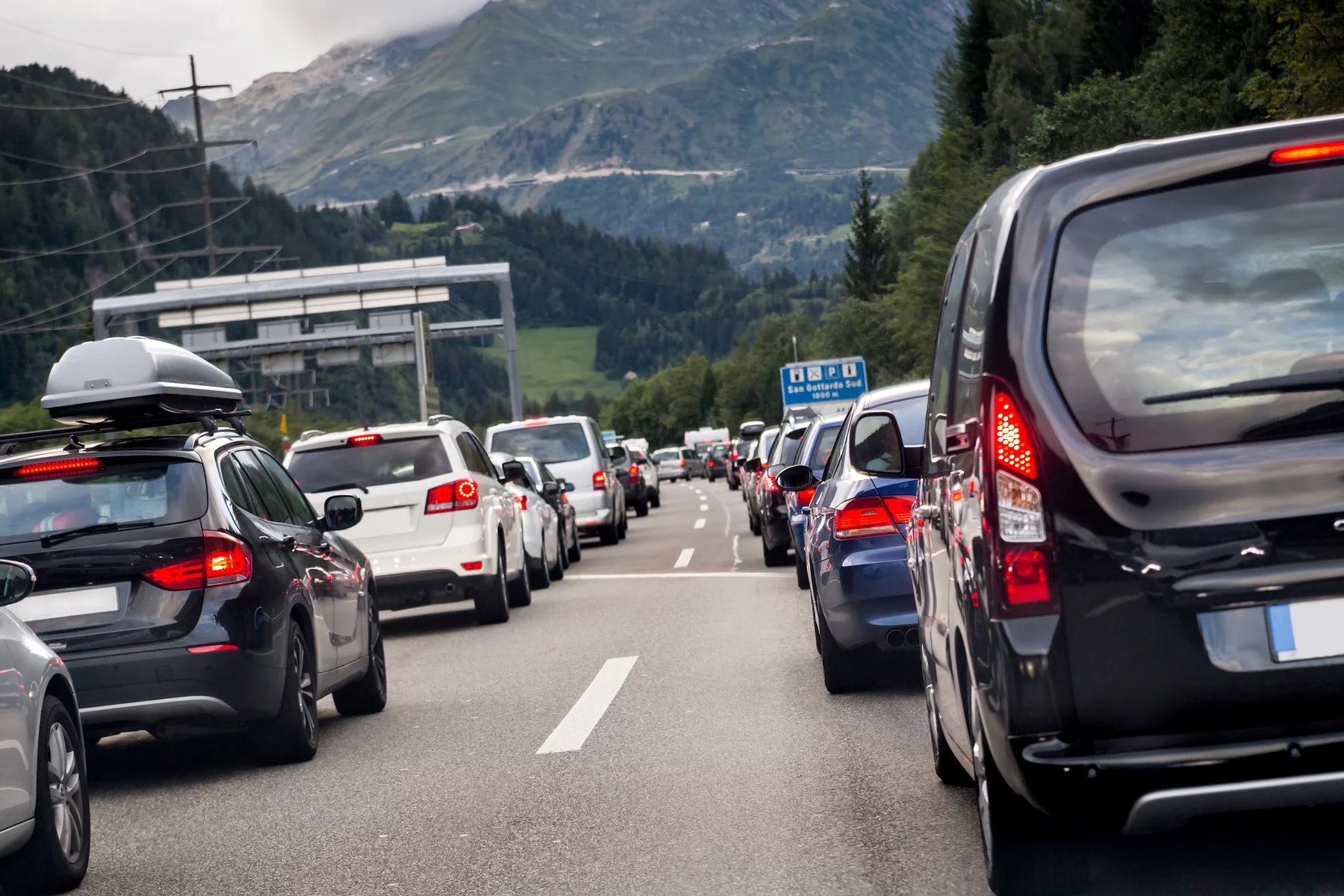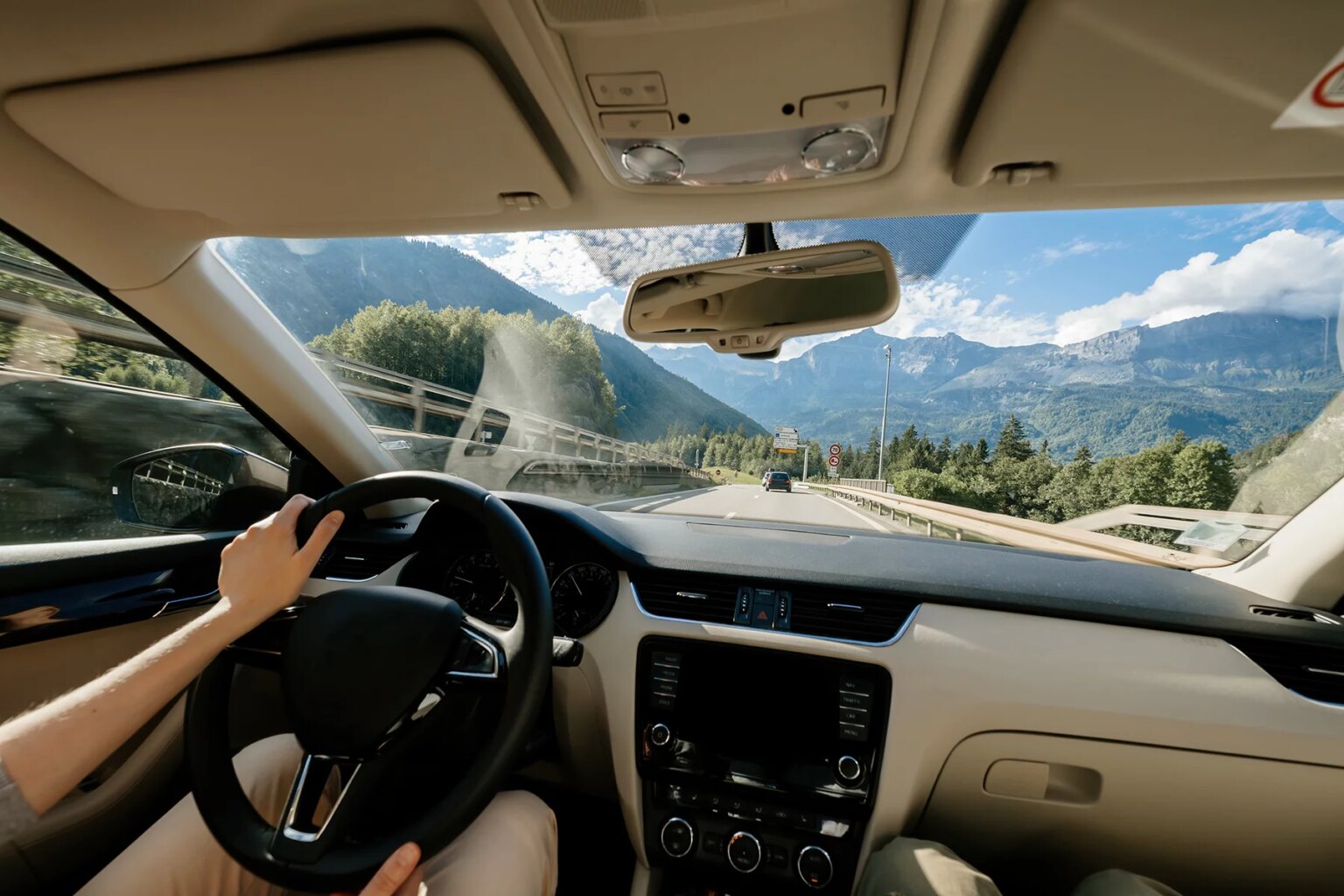Most people can use their foreign driver’s license for the first 12 months when driving in Switzerland. This guide explains what you need to do to exchange your license or get a new Swiss driver’s license. Sections include:
- Driver’s licenses in Switzerland
- Getting a Swiss driver’s license
- Driving tests in Switzerland
- Swiss driving lessons
- Driving with a foreign driver’s license in Switzerland
- Exchanging a foreign driver’s license in Switzerland
- Renewing a driver’s license in Switzerland
- Lost or stolen driving licenses in Switzerland
- Swiss driver’s licenses for other vehicles
- Useful resources
Driver’s licenses in Switzerland
You can drive in Switzerland using your foreign driver’s license for up to 12 months as long as you are at least 18 years old. Once this 12 month period is up, you will need to exchange your license for a Swiss driver’s license.
Switzerland allows those from the European Economic Area (EU plus Iceland, Norway, and Lichtenstein) to exchange their foreign driver’s license for a Swiss equivalent without having to take a test, as long as it is exchanged within 12 months of taking up residence in Switzerland.
Those from outside the EEA will need to take a practical driving test in Switzerland after 12 months in order to exchange their license. Nationals from certain non-EU countries also have to sit the Swiss driving theory test.
If your driver’s license is in a language not recognized by Swiss authorities (English, French, German, or Italian), you need to carry either an International Driving License, which is a translation of your driving license.
Certain categories of international diplomats and civil servants are exempt from having to exchange their license and can drive using a foreign license for an unlimited period.
Getting a Swiss driver’s license
The Swiss driver’s license for cars is known as a Category B driving license. In order to get this, you first need to obtain a provisional license, which you can apply for one month before your 17th birthday.
To apply for a provisional license, you must:
- Attend a 10-hour first-aid course by a certified instructor (information available from your canton’s road traffic office)
- Complete an application form and take it to your canton’s road traffic office along with a valid ID, a passport photo, and a valid eye test
- Pass the Swiss driving theory test
You will then receive your provisional Swiss driver’s license, which is valid for two years. During this time you can drive under the supervision of someone who is at least 23 years old and has completed their three-year driving probation period.

To get a full Swiss driving license, you will then need to:
- Complete the compulsory 8-hour road awareness theory course (Verkehrskunde/sensibilisation)
- Pass your practical driving test (see below)
You will be issued with a probationary driving license for the first three years. To exchange your probationary license for a permanent license, you must:
- Complete a further one-day training course (recently reduced from two days) within the first 12 months of getting a probationary license
- Not commit any serious driving offenses that result in a suspension of your license
The costs of getting a Swiss driver’s license vary across the cantons. Here is a rough idea of what you will have to pay:
- Eye test: CHF 10–15
- First-aid course: CHF 100–200
- Theory handbook: CHF 30
- Theory test: CHF 30–40
- Provisional license: CHF 20–80
- Road awareness theory course: CHF 200–280
- Driving test: CHF 120–140
- Driver’s license: CHF 35–60
Driving tests in Switzerland
The Federal Office of Roads (ASTRA/FEDRO) administrates driving tests in Switzerland, working together with the cantonal road traffic offices. There are two parts to the test – a theory test and a practical test. However, residents from certain countries exchanging their foreign driver’s license only take the practical test.
You apply for both the theory and practical parts of the driving test at your local road traffic office.
Driving theory tests in Switzerland
The theory test is the first part of the Swiss driving test. You can normally book online by completing an application form on your canton’s road traffic office website, choosing a date, and paying the exam fee.
Tests take place at examination centers within the cantons. They last 45 minutes and consist of 50 multiple-choice questions. You need to score at least 135 to pass. You can take the test as many times as you like if you fail. However, you will need to pay the fee each time.
Until the end of 2020, those who passed the test needed to also pass their practical test within two years. However, rules changed in January 2021 and Swiss theory tests are now valid indefinitely.
Tests are usually in one of the national languages (French, German, Italian). However, in some cantons, you can request to take the exam in English. If the exam is in a language you are not fluent in, you can have a certified translator present. You can buy study guides and practice questions in shops and online, for example here at Fahrscultheorie.
Practical driving tests in Switzerland
Once you have passed your theory test and feel sufficiently prepared, you can book your practical driving test. You can do this yourself or your driving instructor can do this for you. It is possible to book online through your local road traffic office.
From January 2021, anyone under 20 years old who is taking a test needs to have had their provisional license for at least 12 months before taking the practical test.

You can take the test in any roadworthy car that meets the standard regulations, for example Swiss license plates. You will need to provide the following to book a test:
- Valid photo ID
- Provisional driving license
- Registration details for the vehicle used in the test
The Swiss practical driving test takes place at a driving school where you will drive accompanied by a qualified examiner who will mark you on your ability to operate your vehicle, drive in traffic, follow verbal instructions, adhere to road signs, maneuver, and park the vehicle. Tests usually last around 40-60 minutes.
If you pass the test, you will receive a stamp on your provisional license immediately permitting you to drive in Switzerland unsupervised. You should receive your probationary Swiss driving license within 10 working days.
If you fail the test, you need to wait one month before retaking it. If you fail three times, you will need to take a driving aptitude test before taking another practical test. You will lose your provisional license if you fail the aptitude test. Passing the aptitude test and then failing the practical test for a fourth time means that you will have to go for psychological assessment on your ability to drive.
Since 2019, anyone who passes their Swiss practical driving test in an automatic vehicle can also drive a manual vehicle on their license.
Swiss driving lessons
You can take driving lessons in Switzerland either formally through a qualified driving instructor or driving school, or informally with someone such as a friend or family member who can drive.
If you choose to learn informally, the person accompanying you needs to be at least 23 years of age and have passed their three-year probationary period. You must attach an L plate clearly to the rear of your car. Under Swiss law, learners are liable for any traffic offenses committed while the accompanying driver is liable for criminal offenses if they are in breach of their obligations.
Many who want a Swiss driver’s license choose to learn through a professional instructor. Lessons normally last 45-50 minutes and there is no minimum or maximum number of lessons prior to taking the test. Instructors should have an Advanced Federal Certificate for driving instructors.
You can find driving schools near to you on ch.ch and compare driving instructor costs at Superfahrlehrer (in German). Typical costs are between CHF 80-110 per lesson. Some schools offer crash courses over a short period of time or bulk discounted lessons.
While learning to drive in Switzerland, you can only drive on highways and expressways once you have booked to take a practical driving test.
Driving with a foreign driver’s license in Switzerland
Anyone can drive in Switzerland on a valid foreign driver’s license for 12 months as long as they are at least 18 years old. You will need to complete certain formalities such as registering your car with the road traffic office in your local canton.
The 12 month period is from the date on your Swiss residence permit. You will need to exchange your license for a Swiss driver’s license before this expires. Your foreign license will be invalid after this date and you can face charges such as a hefty fine if you are caught trying to use it.
Exchanging a foreign driver’s license in Switzerland
You can exchange your foreign driver’s license for a Swiss driver’s license at your cantonal road traffic office. The process can take a few weeks so it’s a good idea to start things well in advance of the deadline.
You will need to provide the following:
- Application form
- Original foreign driver’s license (with translation, if applicable)
- Eye test certificate from a registered optician
- Two passport-sized photos (in color, not black and white)
- Proof of residency and/or visa
- Valid ID
The fee for exchanging your license varies depending on the canton, but is usually between around CHF 30-60.
Residents from EEA countries can exchange their license without having to take any tests. If you’re from one of the following countries you can exchange your foreign driver’s license after 12 months by taking only the practical driving test (not the theory test):
- Andorra
- Australia
- Canada
- Israel
- Japan
- Korea (North and South)
- Monaco
- Morocco
- New Zealand
- Saint-Martin
- Singapore
- Taiwan
- Tunisia
- United States
However if you fail the test, the full theory and practical driving examinations must then be taken.

Residents from all other countries usually have to take both theory and practical tests to exchange their license for a Swiss one. You will have to pay the test fees plus any additional costs, for example driving lessons or theory study guides.
If you don’t exchange your foreign driver’s license within a year, you will be unable to drive in Switzerland and may be required to take the theory and practical tests regardless of where you are from. If you miss the deadline, check which rules will apply.
Renewing a driver’s license in Switzerland
Unlike in countries such as the UK, you don’t need to renew your driving license in Switzerland when you reach a certain age. However, you do need to update your license every time you move to a different canton. This is because Swiss driver’s licenses and car registrations are linked to the local cantonal authority and contain local data.
Some Swiss driver’s licenses in the credit card format have an expiry date, for example, 10 years after the issue date. You won’t need to retake any tests to renew your Swiss license but you will need to send off for a new one from your cantonal road traffic office. The new credit card-style Swiss licenses have the expiry date printed next to the issue date.
Lost or stolen driving licenses in Switzerland
If you lose your Swiss driver’s license or it is stolen, you should report it to the police immediately. You will also need to contact your local road traffic office to get a replacement. You will need to provide:
- Valid ID
- Color photo
Your existing license will be canceled as soon as the replacement is issued. You should receive your new license within a few days. In the meantime, you are still allowed to drive but make sure that you have details such as your driving license number with you.
Fees for replacement licenses vary from canton to canton.
Swiss driver’s licenses for other vehicles
Switzerland has seven different categories of driver’s licenses. These are:
- A – motorcycles
- B – cars and other vehicles with a maximum weight of 3,500kg
- C – vehicles weighing over 3,500kg (e.g., trucks)
- D – vehicles used for passenger transport with more than eight seats
- F – vehicles, excluding motorcycles, with a maximum speed of 45km/h
- G – agricultural and forestry vehicles (e.g., tractors)
- M – mopeds
You need to have the valid driving license for the corresponding vehicle. The fees, requirements, and processes for obtaining a license vary across the different categories. Contact your cantonal road traffic office for more information or read our guide to driving in Switzerland for general information.
Useful resources
- ch.ch – government portal with information on driver’s licenses in Switzerland.
- Federal Office of Roads – FEDRO (Bundesamt für Strassen – ASTRA) – Swiss authority for roads and traffic.
- ASA: Association of Automobile Services (Vereinigung der Strassenverkehrsämter/ Association des services des automobiles/ Associazione dei Servizi Della Circolazione). This website is offered in German, French, and Italian.






